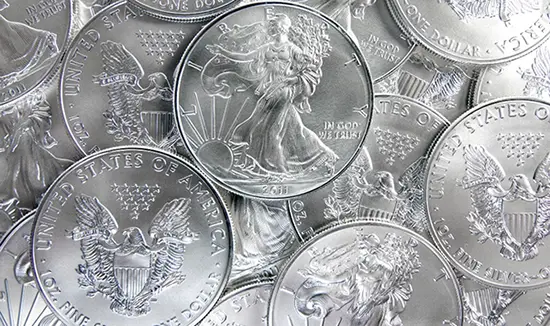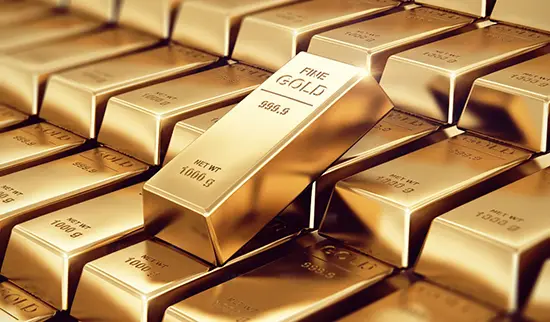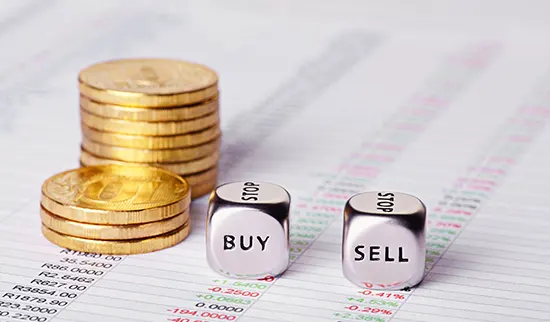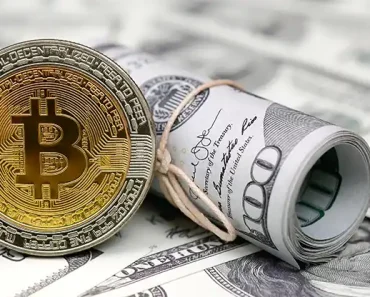Investing in gold bars or silver coins is a nuanced endeavor, encompassing critical factors like divisibility, value, variety, and liquidity. In this article, we’ll compare silver coins and gold bars as investment vehicles. After reading this, you should be in a much better position to make an informed decision.
Benefits Of Silver Coins

Silver coins boast the distinct advantage of easy identification. Prominent mints such as the Royal Mint and Perth Mint produce coins that are widely recognized by discerning investors. However, achieving comprehensive knowledge of these silver coins necessitates time and hands-on experience.
In terms of portability, silver coins have the upper hand over sizable bars. Their typically compact nature makes them more accessible for trade during monetary system collapses. While the likelihood of such breakdowns seems minimal, they manifest during significant economic or currency failures.
Another compelling attribute of silver coins is their recognizability. Coins from establishments like the US Mint, Royal Mint, and Perth Mint are universally known. In contrast, bars produced by specific refiners and assayers might not be as readily identifiable to every investor.
A case in point is the Weimar Hyperinflation in post-World War I Germany. Investors who anchored their assets in gold and silver found themselves in a far more favorable position compared to those reliant on conventional financial instruments.
Benefits of Gold Bars

For centuries, both individuals and institutions have recognized gold as a wise, lucrative, and stable investment avenue. Investing in gold not only mitigates the uncertainties of fluctuating paper currencies but also offers a safeguard against the detrimental impacts of inflation and currency devaluation.
Gold bars, given their ascertainable value, are often viewed as a more dependable investment compared to gold coins. This perception arises from the belief that the value of gold bars is intrinsically linked to the gold they contain, with its worth primarily fluctuating based on the prevailing gold spot prices.
Conversely, gold coins offer the advantage of easy storage. In contrast, the substantial size of gold bars necessitates their safekeeping in secure, insured vaults.
Is It Better to Buy Silver Coins or Gold Bars?
Gold and silver both offer attractive investment opportunities, but gold often holds greater allure for the typical precious metals investor. The gold market boasts greater liquidity, primarily fueled by investment interest and jewelry demand, and its price tends to exhibit less volatility compared to silver.
Conversely, silver is seen as a more speculative investment and closely aligns with economic trends, given its extensive industrial applications. Hence, silver becomes particularly enticing during economic downturns when its price is depressed.
Historically, investors have shown a fondness for silver. One of its paramount advantages is its affordability relative to gold, making it particularly accessible for smaller investors who are enticed by the potential for substantial returns as its price appreciates.
The Right Choice Varies
As an investor, the choice between silver coins and bars hinges on your specific preferences and investment goals. Small-scale investors might lean towards collectible, legal tender items like coins, while substantial investors often opt for silver available at a premium closer to the spot price.
Regardless of whether you are investing in silver bars or coins, it’s imperative to source them from a trusted vendor. Consider partnering with esteemed precious metals refiners, such as Manhattan Gold & Silver, known for offering bullion at competitive rates and providing secure storage solutions for your assets.
When to Sell Gold and Silver

Gold and silver bullion are typically viewed as long-term investments. However, there may come a time when selling becomes a consideration. When might that be? There are two primary scenarios:
1. Emergent Needs: Be it a personal crisis such as a medical emergency or unemployment, or a broader economic setback like surging inflation or a stock market downturn, gold and silver serve as a part of your savings and can be liquidated for immediate cash.
2. Asset Valuation Discrepancies: Prices of gold and silver, like all assets, can inflate to bubble proportions. Should this occur, it may be prudent to divest some of your holdings to capitalize on potential profits. This is particularly relevant if other investment avenues — be it stocks, real estate, or other assets — have witnessed a price drop and represent better value.
Final Thoughts
For generations, precious metals have been esteemed not only as valuable investment vehicles but also as a safe haven for wealth during economic downturns. While gold often stands as a stalwart shield against economic turbulence, silver tends to be a more speculative venture. Both, however, remain popular investment choices. Silver, despite its initial Value Added Tax (VAT) costs, possesses a distinctive investment potential capable of delivering substantial returns. Given these differences, diversifying one’s portfolio with both gold and silver can be strategically beneficial.




